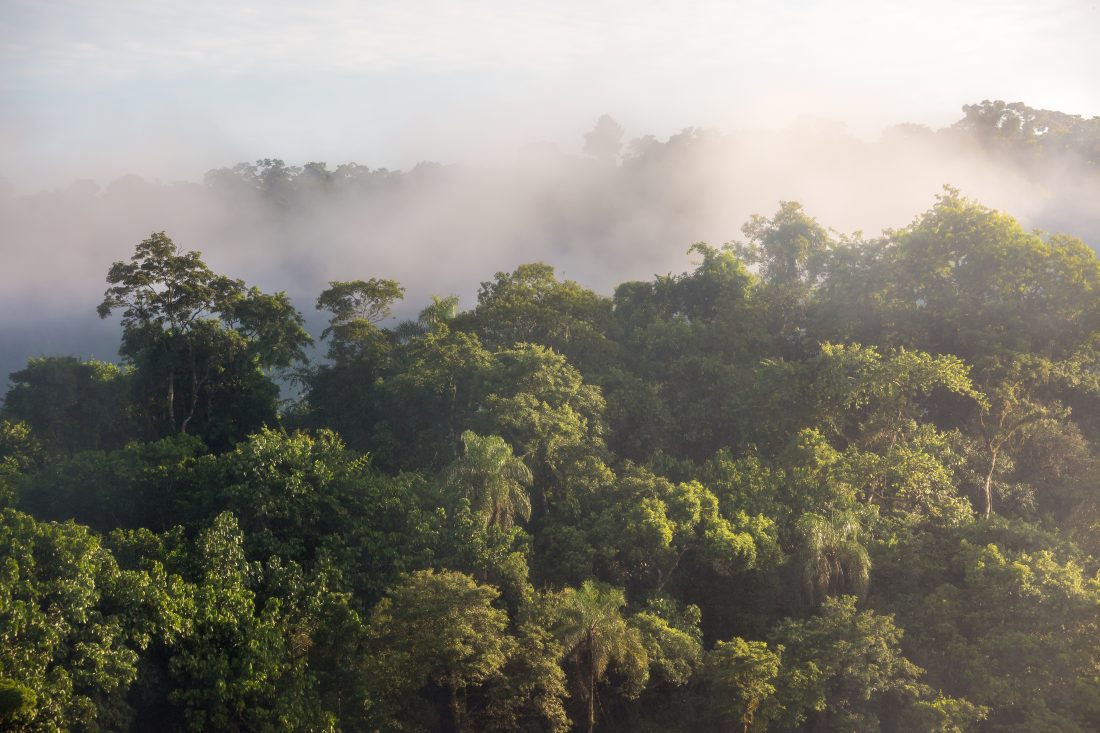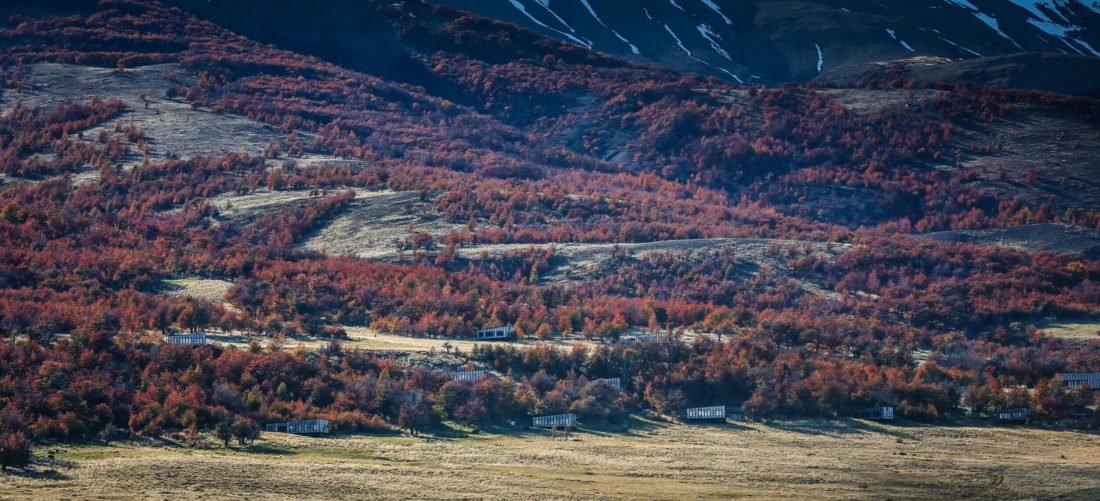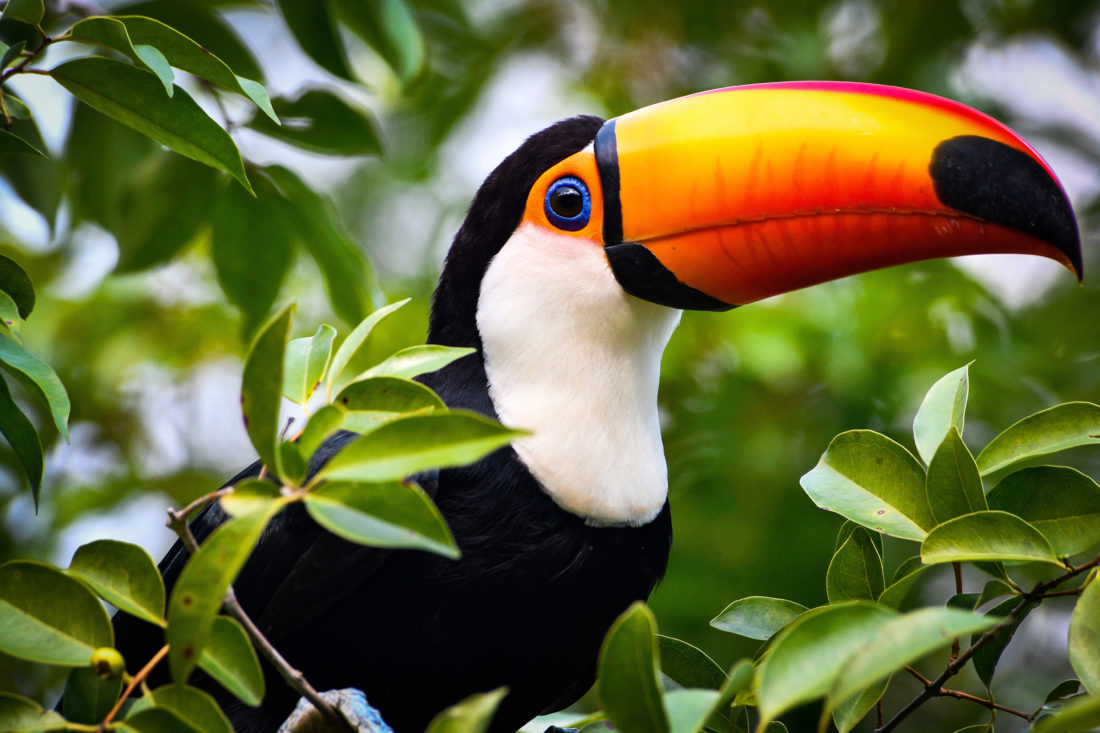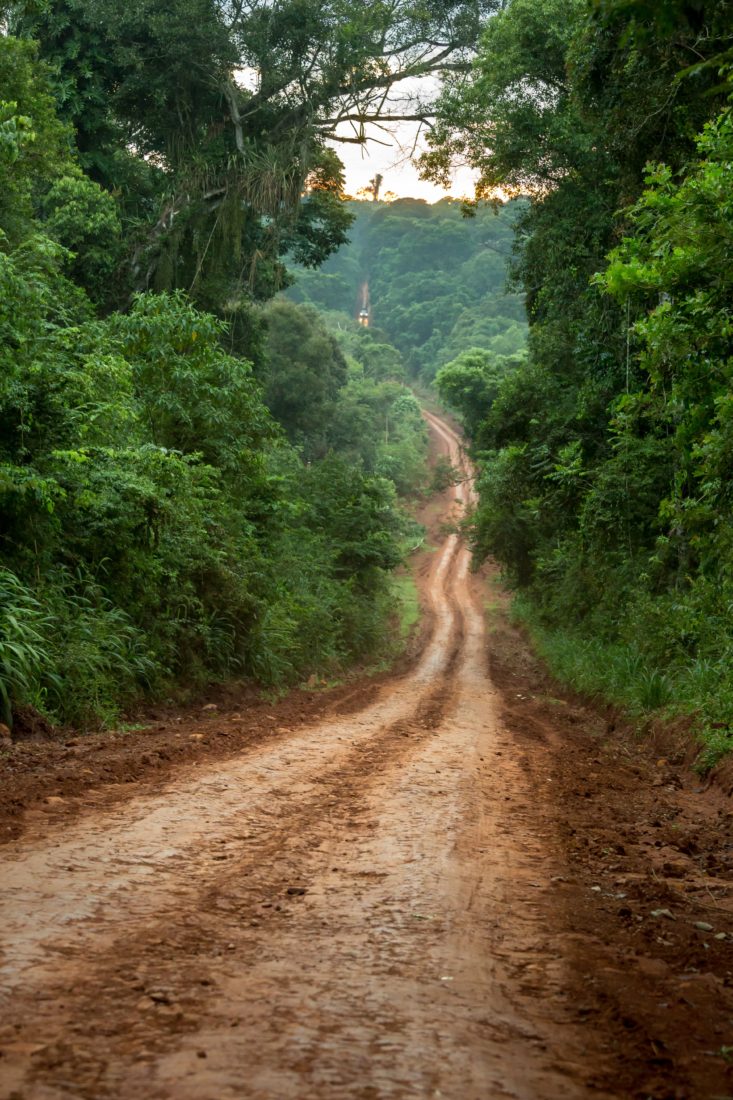Preserving the three corners of South America where our lodges are located has always been of utmost importance to us at Awasi. We protect and conserve over 340 hectares (840 acres) of virgin forest and native woodland in Iguazu and Patagonia.
These forest areas, preserved and maintained by our team, absorb over 10,000 tonnes of carbon dioxide per year. This total is a greater amount than the emissions generated by our three lodges, as well as the airline and transfer travel undertaken by our employees and our guests.
This means that Awasi is officially carbon neutral.

Awasi protects 145 hectares of virgin forest in the Atlantic Rainforest near the Iguazu National Park.
An official carbon footprint study
Announcing that Awasi is carbon neutral could not be done without solid proof. We needed to determine the carbon footprint of our hotels, operations and guests, in order to assess how best to reduce and offset this footprint.
The investigation, undertaken and compiled into a report by external specialists, involved calculating the carbon emissions of each of our three lodges: Awasi Iguazu, in Argentina, and Awasi Patagonia and Awasi Atacama, in Chile.
The methodology used was based on the greenhouse gas accounting standards developed by Greenhouse Gas (GHG) Protocol, a standardised framework developed in partnership with the World Resources Institute (WRI) and the World Business Council for Sustainable Development (WBCSD) to measure emissions.
How did we measure emissions?
The emissions measured are split in to three categories:
Tier 1: Emissions generated through the combustion of fossil fuels, including static equipment such as generators or heating systems, as well as vehicles;
Tier 2: Emissions related to the consumption of electricity drawn from the national grid;
Tier 3: Other indirect emissions, such as generated from the transfer of staff to/from each hotel, emissions generated from the decomposition of waste materials, and emissions generated from air travel.

Awasi Patagonia is located within a 200-hectare reserve of native “lenga” woodland. Our 14 Villas are built on stilts to minimize impact.
The Awasi Reserves
The study also takes into account carbon offset efforts undertaken by the Awasi team. This principally comprises the protection and conservation of a private forest reserve in Misiones, near our Relais & Chateaux lodge, Awasi Iguazu. We control 145 hectares of virgin forest in the Atlantic Rainforest near the Iguazu National Park, an incredibly biodiverse area home to a host of native species of flora and fauna and accesible only to Awasi guests. In addition, we own 200 hectares of native woodland in Patagonia.
Preventing local deforestation
The Atlantic Rainforest is highly vulnerable to deforestation for agriculture and plantation development – over 85% of the original area has been lost. Much of the forest near the Iguazu National Park has been felled to feed the paper and yerba mate industries. By taking on responsibility to preserve this land, we have safeguarded its survival, thereby guaranteeing its role as a carbon sink for the future. The Awasi staff and rangers protect this area of forest on an ongoing basis whilst monitoring the incredible wildlife that call it home.

The Atlantic Rainforest in Iguazú is an incredibly biodiverse area home to a host of native species of flora and fauna.
Absorbing 10,000 tonnes of carbon dioxide
With the results now in, we can confirm that our efforts are paying off and will go some little way towards helping the global effort to fight climate change. The forest areas protected and maintained by Awasi absorb over 10,000 tonnes of carbon dioxide per year, more than offsetting the emissions generated by the three lodges – Awasi Iguazu, Awasi Patagonia and Awasi Atacama, meaning Awasi is officially carbon neutral.
Don’t forget the guests!
The study also estimated the carbon emissions generated by Awasi guests visiting each hotel. Findings were based on details of guests at each of our three lodges during the year 2018 and an estimated average carbon emission per guest for flights and transfers from and to their country of origin. The results determined that the carbon dioxide absorbed by the Awasi reserves each year also offsets these emissions incurred by travel.
The Awasi team is continuously assessing its carbon footprint to determine how to further minimise our ecological footprint. For example, solar panels are currently being installed at Awasi Atacama.

Our three lodges are built with local materials and low-impact techniques, that respect both the natural as the cultural heritage of each destination.
Don’t forget we can all – organisations and individuals – do our part. For example, we can offset carbon for flights and transfers which is easily done by individuals. When operating lodges in three pristine corners of South America – Atacama, Patagonia and Iguazu – our team is lucky enough to experience first-hand the incredible biodiversity of our planet. The least we can do is do what we can to protect it for future generations.
“We do not own the freshness of the air”
We will leave you with a short film – food for thought about our place on the planet:

